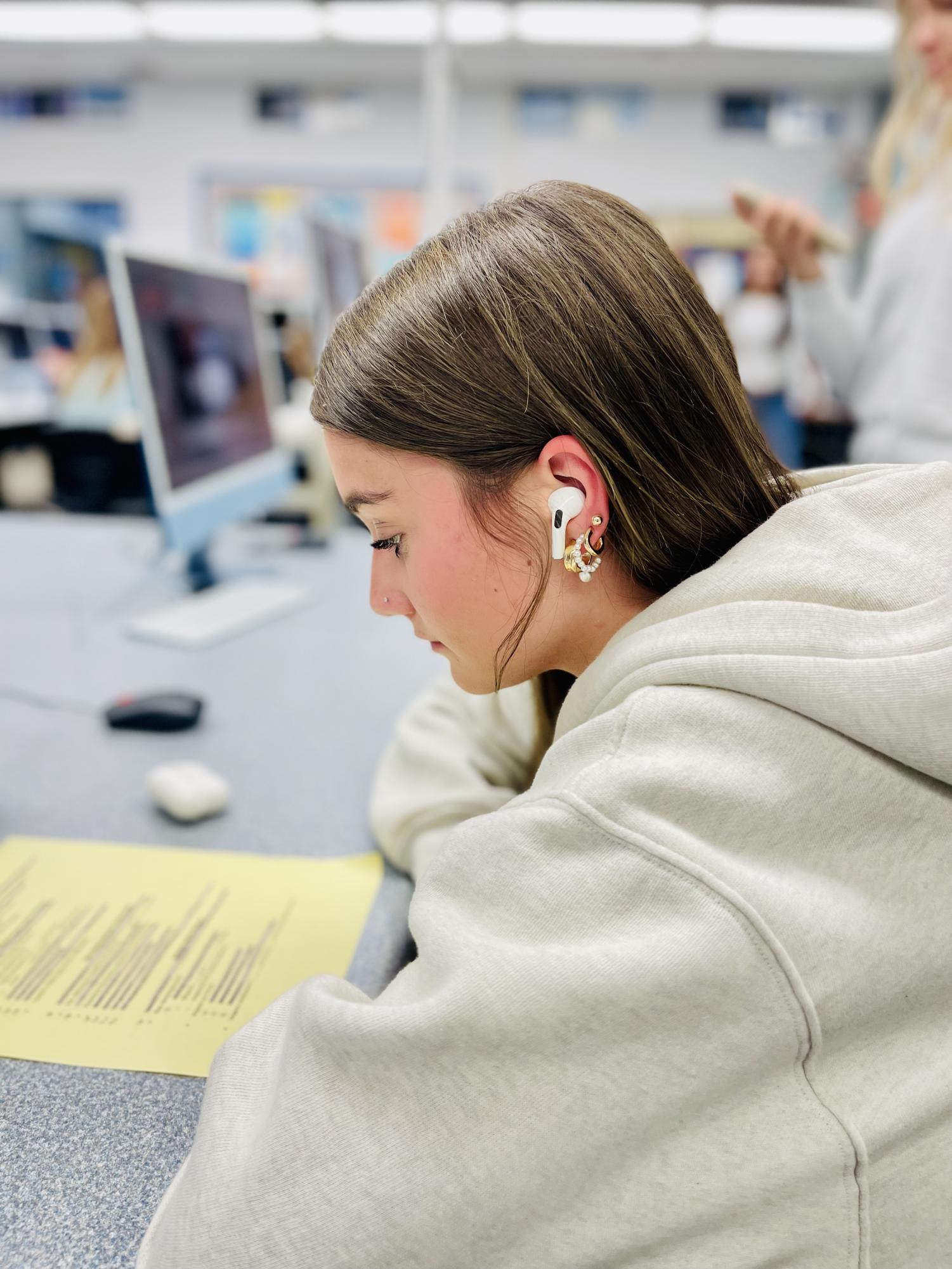Most people consider music to be something fun to listen to while hanging out with friends or relaxing after school, but did you know that music can actually help improve your grades? Listening to music while working has real benefits for learning, memory, and focus. In fact, adding music to your study routine might be one of the easiest changes you can make to your routine in order to do better in school.
First of all, music can help reduce stress, depending on the beats per minute of the music and the length of time listened (Releasing Stress Through the Power of Music: Counseling Services). Education can be extremely stressful at times, especially during finals or testing seasons. Listening to calming music, like soft instrumental or slow metronome, can lower stress levels and help students feel more relaxed. It’s much easier to concentrate and remember what you studied when you’re calm (Raypole). For example, Kensie Blohm (12) explained that, “ When I listen to music that’s calming to me, I always tend to get more work done and feel less stress, too.”
Music can also improve focus. Some students find that listening to music with a steady beat helps them stay on task longer. This is especially true for repetitive assignments like math problems or study reviews. The rhythm keeps the brain in focus without being too distracted (Raypole).
Another way music can boost grades is by improving memory. There’s something called the “Mozart Effect,” which suggests that listening to music can temporarily enhance the brain’s activity. Many students claim that studying with background music improves their memory retention. Some even create songs or rhymes to help memorize facts, which makes studying more fun and effective (Jenkins).
Music is also known to boost mood. When you’re in a good mood, you’re more motivated to tackle homework and other extracurricular projects. Upbeat music can make a long study session feel shorter and less boring. Motivation is key to academic success, and music is a simple way to get into a positive mindset before starting your work.
Listening to music while studying can be a powerful tool for students who use it wisely. Whether it’s calming nerves before a test, helping focus during homework, or making study sessions more enjoyable, music has the potential to boost grades and make school feel a little easier. Next time you have a large load of homework ahead of you, reach for your headphones!
Works Cited
Jenkins, J S. “The Mozart Effect.” Journal of the Royal Society of Medicine, U.S. National Library of Medicine, Apr. 2001, pmc.ncbi.nlm.nih.gov/articles/PMC1281386/.
Raypole, Crystal. “Here’s How Music Can Help You Concentrate.” Edited by Karin Gepp, Healthline, Healthline Media, 30 May 2023, www.healthline.com/health/does-music-help-you-study.
“Releasing Stress through the Power of Music: Counseling Services.” University of Nevada, Reno, www.unr.edu/counseling/virtual-relaxation-room/releasing-stress-through-the-power-of-music. Accessed 21 May 2025.


